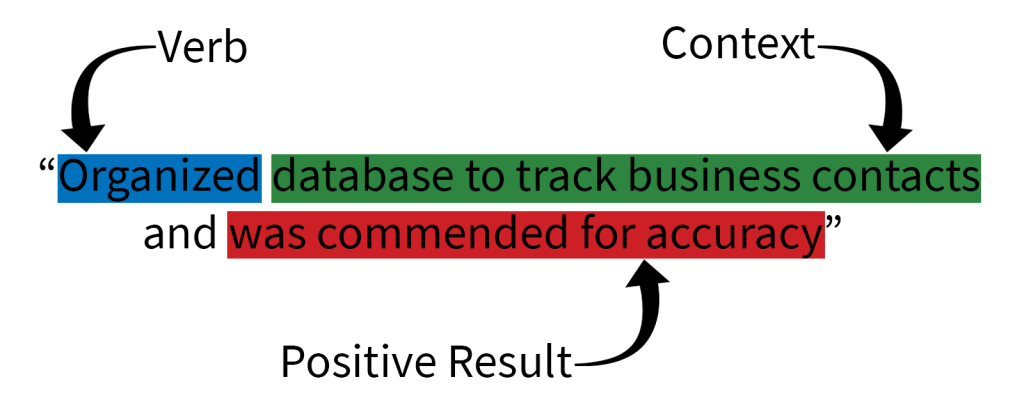Resume and Cover Letter Writing
7 Communicate Your Skills
 Take an inventory of your skills, identify your strengths, and begin to consider the ways in which some of those skills might be transferable to Digital Technologies.
Take an inventory of your skills, identify your strengths, and begin to consider the ways in which some of those skills might be transferable to Digital Technologies.
Information about key skills and accomplishments is presented both early in the resume (as highlights of qualifications or a profile/skills summary) as well as in your experience and education. We will discuss additional possible resume sections later on in this module.
Accomplishment Statements
An Accomplishment Statement is a phrase that tells the story of an achievement or unique contribution you have made. It is a success story that helps demonstrate your value to the reader by providing evidence of a past achievement.
Here is the simple formula for a resume accomplishment statement:
Use the CAR acronym to help you brainstorm possible accomplishment statements:
C is for CHALLENGE/CONTEXT: What was the challenge/context/problem/issue?
A is for ACTION: What action did you take/what skills did you use?
R is for RESULTS: What was the result/benefit of your actions? (quantify or qualify where you can.)
Here is the simple formula to write your accomplishment statement:
In one phrase, an accomplishment statement explains…
- The action you took (Verb),
- Under what circumstances (Context), and
- The positive outcome (Result or Reflective Learning).
VERB + CONTEXT + RESULT/REFLECTION
The example below will show you what an accomplishment statement looks like when it is all put together.
Let’s say you want an accomplishment statement to support your organization skills, accuracy, and/or database skills. You think of an example: You had to track business contacts (context), and so you organized (verb) a database, and you were commended for its accuracy (result).
- Your accomplishment statement could be “Organized database to track business contracts and was commended for accuracy.”

Additional examples include:
- Welcomed customers in a friendly manner and provided clear directions for locating products.
- Flexibly handled multiple projects at the same time, leading to improved office efficiency.
- Interacted with diverse customers on a regular basis, providing personalized service.
Features of an Accomplishment Statement
- It is in the form of a single phrase (in a resume, use a bullet point).
- It includes a descriptive Action verb (what you did).
- It shows a positive Result.
- Where possible, the Context and/or Result are quantified (with a number) or qualified (with a descriptor).
For example: “Served customers” would become “Served over 50 customers per day.”
Accomplishment Statements are not merely a list of duties; instead of saying what you have done, you show the value you brought to the experience – and the value you can bring to your next employer. “Lead with strong action verbs and follow with an accomplishment rather than a task. Employers are interested in what you’ve achieved, not just what you’ve done.” [1] If you’re not sure how to describe your accomplishment, you can make use of this resource from ResumeGenius that lists over 100 resume action verbs!

